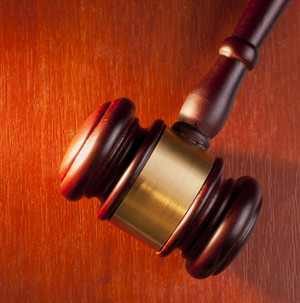Judge Tosses Out Disorderly Conduct and Resisting Arrests for Playing Christian Music at Home
Monica Williams (not her real name) had the proverbial “neighbors from hell”. The neighbors had previously filed police reports making all sorts of claims. The neighbor claimed that she could hear Monica talking and coughing, which caused her “fear”. Although the neighbor made these numerous complaints, no previous Port St. Lucie (PSL) police officer ever issued a noise ordinance violation notice or made an arrest.
 Unfortunately, a PSL officer with just one year of experience was dispatched to the neighbor’s house in July, 2013. The neighbor claimed yet again that Monica was “blasting” music. This event took place at approximately 5:40 P.M. on a Tuesday afternoon.
Unfortunately, a PSL officer with just one year of experience was dispatched to the neighbor’s house in July, 2013. The neighbor claimed yet again that Monica was “blasting” music. This event took place at approximately 5:40 P.M. on a Tuesday afternoon.
The “newbie” officer filed an arrest affidavit asserting that he “could clearly hear a radio from approximately 100 feet” from Monica’s residence. The affidavit declared, under oath, that the radio was pointed out the window. Later on, at a hearing, the officer was confronted with the actual music maker, which was a small clock radio with a speaker approximately 2-1/2 inches across. The speaker was underneath the clock radio and, therefore, was not pointed anywhere. The newbie admitted that he really could not see into the window. So much for the newbie’s claim that a speaker was pointed out the window!
Fort Pierce Criminal Attorney
The newbie went to Monica’s front door to demand she turn down the Christian music or close her window. Of course, the newbie had no legal basis for infringing upon Monica’s protected First Amendment Rights.
The newbie made no effort to comply with the requirements of the Port St. Lucie noise ordinance. That ordinance expressly states that sounds are permitted, unless they exceed a specified level as measured by a decibel meter over a period of 15 minutes. The newbie would later explain that he did not have a decibel meter.
The newbie officer noticed that, in his opinion, the Christian music was creating a disturbance. Since Monica had not turned the music down enough for his liking, he returned to Monica’s house. At a hearing, the newbie testified that he “asked” Monica to step out of the house. He testified that Monica was not ordered out of the house, and that she was not under arrest at that time. He testified that Monica partly opened the door. She then sought to close the door, because there was no requirement for her to speak with the officer. After all, she had not been placed under arrest. At that point, the newbie grabbed Monica and forced her to the floor. The newbie charged Monica with “resisting arrest”, even though he had not told her she was under arrest and had only “asked” her to come outside.
Monica was also arrested under a State statute for disorderly conduct. The newbie asserted that the Christian music was causing a disturbance. Monica was given a free ride to St. Lucie County’s “Crossbar Hilton”, which also provides free accommodations to those accused of crimes. After bonding out, Monica retained Jeffrey H. Garland. Mr. Garland immediately identified the First Amendment issue.
After reviewing discovery materials, Mr. Garland filed a motion to dismiss alleging that the disorderly conduct arrest violated Monica’s rights to free speech and expression as guaranteed under the Florida and federal Constitutions.
In moving to dismiss the charges, Mr. Garland noted:
- Monica was in her own home.
- The music source was an ordinary clock radio with a 2-1/2 inch speaker.
- No measurement was made of the sound level.
- The right to play music is protected under the First Amendment. See Saia v. New York, 334 US 558, 562 (1948) (“the police need not be given the power to deny a man the use of his radio in order to protect a neighbor against sleepless nights.”); State v. Catalano, 104 So.3d 1069, 1078 (Fla. 2012).
- The incident took place at approximately 5:40 P.M. on a Tuesday afternoon. The disorderly conduct statute, §877.03, violates due process under the Florida and federal Constitutions, as well as the right to free speech, because there is no objective standard to evaluate whether the music constitutes a “disturbance” prosecutable under the statute.
- Applied to Monica’s playing of Christian music in her own home, during daylight hours, the disorderly conduct statute is unconstitutionally overbroad. See Firestone v. News-Press Publishing Company, 538 So.2d 457, 459 (Fla. 1989) (“Restrictions on First Amendment rights must be supported by compelling governmental interest and must be narrowly drawn to insure that there is no more infringement than necessary.”).
- The newbie’s arrest of Monica was “illegal”, because it violated Monica’s protected constitutional rights and was effectuated without a warrant. Therefore, the resisting charge should be dismissed, because the newbie was not lawfully executing a legal duty. Norton v. State, 691 So.2d 616, 617 (Fla. 5th DCA 1997).
At a hearing on 9/25/13, Judge Clifford H. Barnes rejected the State’s argument that police have authority to regulate music in a private home at 5:40 P.M. under the circumstances presented in this case. All charges were dismissed.
Comment
This case represents yet another example of police intrusion into private activities guaranteed under the Florida and United States Constitutions. It is significant that more experienced PSL officers understood the limitations of government power when they refused to act against Monica during previous calls by the neighbor from hell. While it is not surprising that a newbie officer would misunderstand the limits of governmental power to regulate protected speech, it is disappointing that prosecutors were just as disrespectful as the newbie of First Amendment rights. Do police and prosecutors foist such nonsense on the public to justify the illusion of ever increasing levels of criminal activity?
